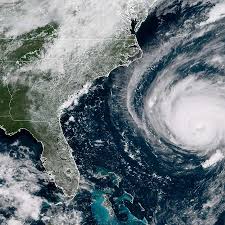A recent study from Michigan Engineering News warns that climate change may sharply increase the frequency and severity of power outages caused by hurricanes, particularly across the U.S. Southeast. As global temperatures rise toward 3°C above preindustrial levels, the research predicts a dramatic intensification of storm impacts on electrical infrastructure.
Stronger Storms, Longer Outages
The study highlights that stronger and slower-moving hurricanes, fueled by warmer oceans, will likely result in longer-lasting and more widespread power disruptions. Historically, outages were concentrated along the immediate path of hurricanes. However, modeling now shows that regions previously considered lower-risk—including Georgia, northern Florida, and parts of the mid-Atlantic coast—will face increasing vulnerability.
“Higher temperatures amplify storm energy and rainfall, which in turn cause greater damage to transmission lines, substations, and distribution systems,” researchers explained. “Communities that haven’t had to deal with extended blackouts before may start seeing multi-day or even multi-week outages.”
Mapping Future Risks
The research team combined climate projections, hurricane simulations, and power grid models to assess future risks under various warming scenarios. Results indicate that each additional degree of warming significantly raises the number of customers likely to experience prolonged power outages.
Urgent Need for Grid Resilience
Experts emphasize that these findings point to an urgent need for grid resilience investments, such as underground power lines, microgrids, and renewable energy backup systems. Without such measures, tens of millions of Americans could face increasing threats to safety and infrastructure during future hurricane seasons.
“This isn’t just about stronger storms,” said one of the lead authors. “It’s about an electric grid designed for a climate that no longer exists.”

